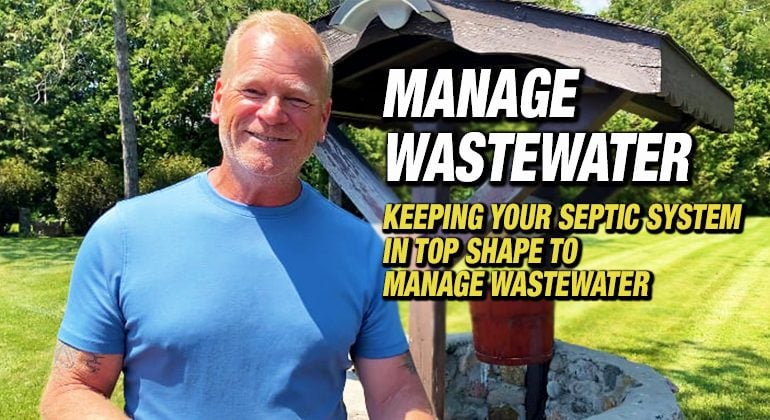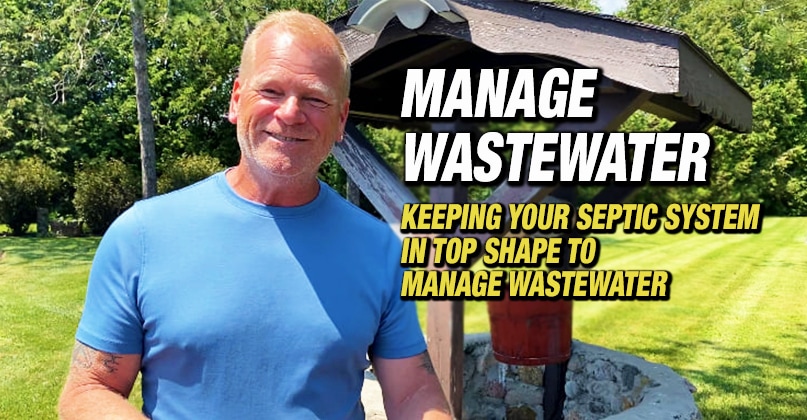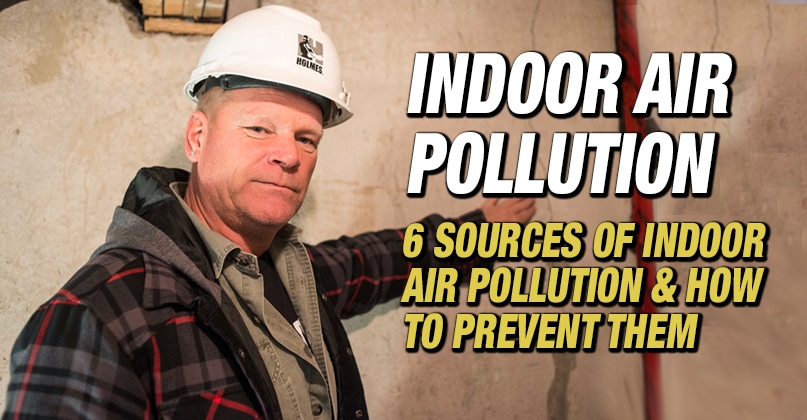I love my kitchen but it’s not large so it gets messy fast – add two growing young daughters, a husband and a cat – you have to stay organized....

Keeping your Septic System in Top Shape to Manage Wastewater
By Mike Holmes
Mike’s Advice / Home Safety & Maintenance
Tuesday, November 24th, 2020 @ 2:41pm
Your home needs a solution to dealing with its wastewater. For those of you who live in the city, or suburban areas, you’re probably using the city’s sewer system, which will accept your wastewater from your bathrooms, kitchens, and laundry rooms.
But I live in the country – and me and many others like me in rural areas don’t have the same access to our municipality’s wastewater system. Our homes have to find a way to deal with that on a smaller scale.
So how do we do that? We make use of a septic field and septic tank system to manage our wastewater.
What is a septic system and what does it do?
The role of your septic system is to treat the wastewater your home produces and redistribute it to the groundwater. It’s typically made up of two parts: a septic tank and a leach field.
Generally, the septic tank takes in the wastewater, and separates the organic, floatable matter (like oils and grease) as well as any solid waste that settles on the bottom of the field. Then the liquid (known as effluent) is discharged from the tank through a series of perforated tubes buried in a leach field which filter the water through the soil, eventually returning to the groundwater.
How much maintenance does a septic system require?
Septic systems don’t need a ton of maintenance, and like most things in your home, your maintenance schedule will vary depending on the use your system sees. If you have a cottage that uses a septic system and you only visit a handful of times per year, it will require a lot less maintenance than a property that you live in full time.
The most important thing for your system’s health is to set up a regular schedule for pumping out your septic system. Pumping your septic system will get rid of those solids that aren’t broken down, keeping the system functioning properly. Depending on usage, you’ll probably want to pump every 2 to 5 years or so.
What are common septic system problems?
When the septic system is having an issue dealing with your wastewater, odds are you’ll be able to smell it, but there are a few other telltale signs that your system needs a second look.
When the tank is too full, it may result in a clogged leach field. When that happens you may notice that the grass over the leach field is a lot greener (and often, spongier) than the grass on the rest of your property. Other signs are small, unexplained pools of water on your lawn, or sinks that drain more slowly.
Sewage backing up your drains is a major hazard and can be a symptom of a septic tank that’s too full. If you see this happening, call in a pro immediately.
READ MORE:
Can you build over a septic system?
I know what you’re thinking – that septic tank and leach field are taking up some prime real estate on your property and it feels like a waste to not be able to build something on top of it. A garage, a deck, or even paving over it to create an extra driveway.

Resist the urge. There really shouldn’t be anything on your septic system.
A nice grass field is your best bet, though you could plant some small shrubs – as long as the roots aren’t too long. Always consult your landscape architect before planting anything on or near your septic system.
Do septic systems affect well water?
While this may not be the case for every home – if you live on a property that has a septic field, you’re probably also using well water. When the well and septic systems are located too close together, or the septic field is malfunctioning that could cause the well water to be contaminated from the wastewater in your septic field.
A well should last about 30 to 50 years, so at some point in your home, you may need to close off your old well, and dig a new one. Make sure the new location doesn’t interfere with your septic field.

Even if the septic system is functioning properly, your well could still be an entry point for harmful gasses likes radon.
READ MORE:
Make sure you’re regularly testing your well water to ensure that it’s safe for your consumption.
Too often your septic system will be out of sight and out of mind. Don’t wait until you see (or smell) an issue with your septic tank. Make sure you’re inspecting and pumping your unit out regularly to ensure it’s working smoothly and not negatively interfering with the other systems in your home.
READ MORE:








